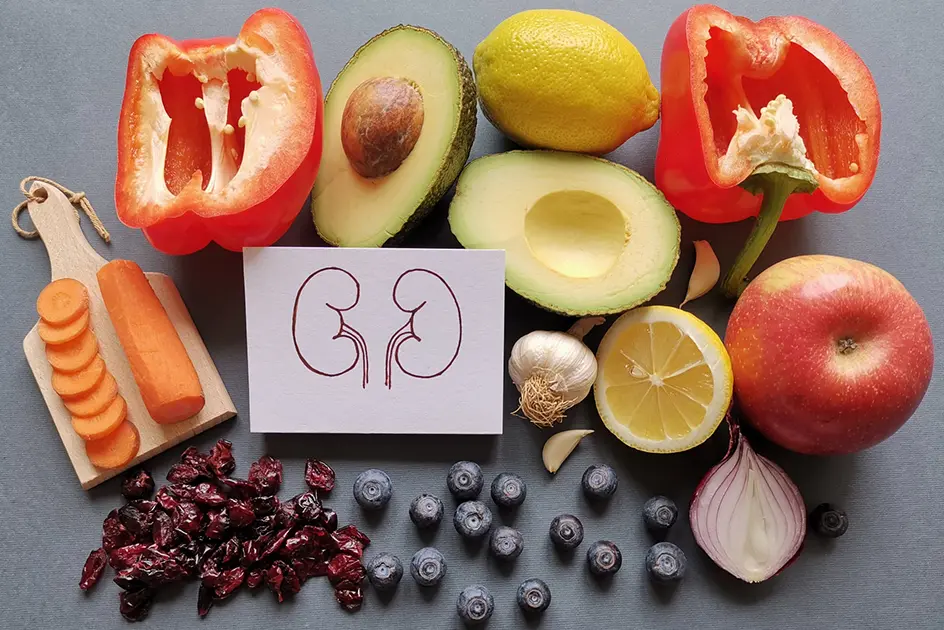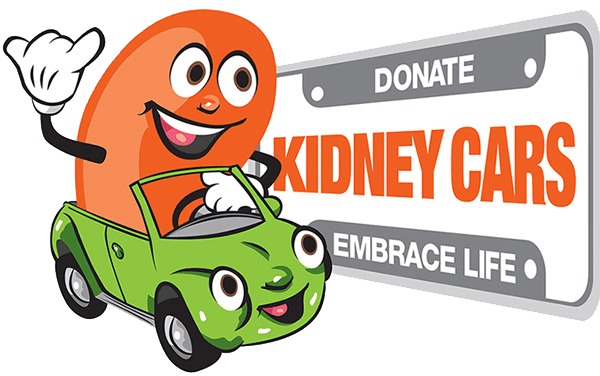We all have a complex collection of microorganisms in our intestines that affect our health, called the microbiome or microbiota. Some microbiome functions are specifically related to digestion, like breaking down parts of our food. However, the microbiome is also important for immunity and protecting us from harmful bacteria, which makes it vital to our overall health.
Probiotics are microorganisms including live bacteria and some yeasts that can influence the makeup of the microbiome. Probiotics are considered “good” bacteria, and they're found naturally in some foods, added to some food and beverage products, and available in dietary supplements. If you take the right amount and type of probiotics, health benefits are possible, whether you have kidney issues or are in good overall health.
Learn more about sources of probiotics, the general benefits of probiotics, and possible benefits for chronic kidney disease below.
Food sources of probiotics
Fermentation is the source of many of the probiotics naturally found in foods. It's an ancient practice that historically used controlled growth of bacteria to preserve food. Fermentation happens naturally or by adding a starter, such as in sourdough bread making.
Probiotic products are typically stored at room temperature or in cool environments. Since probiotics are live bacteria, they're sensitive to high heat and can die above certain temperatures, which would then make them ineffective. Some foods, like sourdough bread dough, are fermented products but they aren’t considered probiotic foods after they’re cooked since the temperature used in cooking kills the live bacteria and cultures in the bread.
Probiotics are naturally found in:
- Yogurt that contains live and active cultures
- Kefir, a fermented milk drink
- Tempeh, a fermented soy protein
- Miso paste
- Kimchi, which is spicy fermented cabbage and vegetables
- Kombucha, a type of fermented tea
- Sauerkraut, a type of fermented cabbage
- Fermented pickles that are not processed or canned with heat
- Natto, which is a traditional Japanese dish of fermented soybeans
Probiotics are also added to some food products that they don't naturally occur in for extra benefits. These types of products include:
- Juices and other bottled drinks
- Infant and toddler formulas
- Breakfast cereals and granolas
- Probiotic fruit snacks
- Snack mixes
Probiotics, prebiotics, and synbiotics
When learning about probiotics, you might also hear the terms prebiotics, synbiotics, and sometimes postbiotics.
Prebiotics are a type of carbohydrate and fiber that feeds the good bacteria in our gut. Prebiotic fiber is found in bananas, garlic, dandelion greens, and leeks and is also available in supplement form.
Some products contain both prebiotics and probiotics, which makes them synbiotics. Synbiotics indicate that both probiotics and prebiotics are in a product, working together to provide a health benefit.
Postbiotics is a newer term that is starting to be used more often in supplements. Postbiotic products are not alive and are the products of probiotics digesting foods. These compounds created by probiotics also provide a health benefit.
General benefits of probiotics
The most common species of probiotics are from the Bifidobacterium and Lactobacillus groups of bacteria. For any health condition, the beneficial effects of probiotics depend on the dose taken and the strain of probiotics a supplement contains.
For example, in the probiotic Lactobacillus rhamnosus GG, the genus is Lactobacillus, the species is rhamnosus, and the strain is GG. This probiotic is backed by research studies that show it helps decrease diarrhea, but the benefits of this type of probiotic are specific to this one GG strain.
In general, probiotics help support gut health and promote better immune health by improving the makeup of the microbiome. More research is needed, but based on information from the National Institutes of Health, probiotics may provide these specific health benefits:
- Decrease the likelihood of traveler’s diarrhea
- Prevent diarrhea from taking antibiotics
- Reduce irritable bowel syndrome (IBS) symptoms
- Help relieve constipation
- Lessen symptoms of eczema
- Possibly help prevent tooth decay and gum disease
Potential benefits of probiotics for kidney health
Probiotics are a promising research area for many health conditions, but you should check with a healthcare provider or member of your healthcare team to make sure probiotics are safe to try if you have chronic kidney disease.
Research results on the benefits of probiotics for people with kidney disease have been mixed. Some research suggests that probiotics:
- help improve the quality of life in people with CKD
- decrease symptoms from toxins not filtered well by damaged kidneys
- reduce inflammation
- delay further stages of kidney failure
However, a Cochrane Review in 2023 of 45 studies with 2266 total participants couldn't confirm these benefits. The Cochrane Review concluded that there wasn't enough evidence to support or deny using of probiotics, synbiotics, or prebiotics in people with chronic kidney disease.
In other words, while benefits are possible, the results from research studies aren't enough to say whether probiotic supplements would help, hurt, or do nothing for a person with chronic kidney disease. To help understand the potential of probiotics for CKD, more research studies are needed.
Potential side effects
Side effects of probiotics are generally minimal. The most common side effects are gastrointestinal: nausea, diarrhea, gassiness, and bloating. These mild side effects usually decrease or go away over time. More serious side effects are possible for people who are critically ill or immune-compromised, but probiotics are generally safe for people in good health.
Bottom line
Probiotics provide benefits for overall health – especially gut and immune health – but more research is needed to understand the effects of probiotics on people with chronic kidney disease. Talk to a healthcare provider who knows your medical history to help decide if a probiotic supplement is right for you. If you'd like to start incorporating probiotics into your diet safely to see if you notice a difference in your gut health, try incorporating more foods that naturally contain probiotics. Eat some yogurt as a snack, drink a glass of kombucha as a bubbly drink, or add kimchi to a rice bowl for some spicy probiotic flavor. For more specific advice, work with a registered dietitian who specializes in renal or kidney nutrition.















